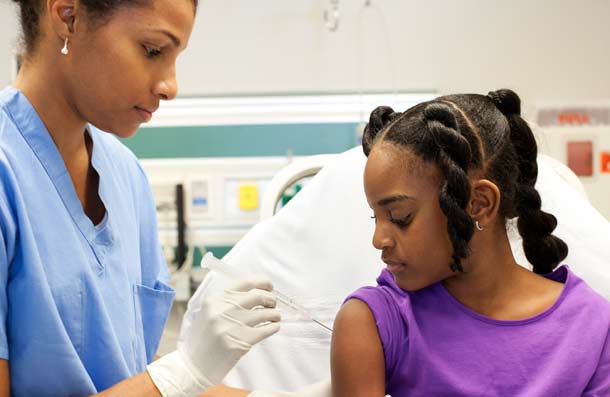
Good news: The chances of your teenage daughter or little sister contracting the human papillomavirus (HPV), a sexually transmitted disease that can cause genital warts, cervical cancer and throat cancer, has decreased by nearly half in recent years. Yesterday, the Centers for Disease Control and Prevention released reports on the findings of a recent study on the effects of the HPV vaccine on the infection rate among women, stating that they found a 56 percent reduction in the types of the virus the shot targets.
The study used data from the National Health and Nutrition Examination Survey to compare the proportion of girls and women ages 14-59 who had certain types of HPV before and after the vaccination program began seven years ago. The study was published in the June issue of The Journal of Infectious Diseases.
CDC director, Thomas Frieden, called the decline “striking.”
Each year about 14 million people are infected with HPV. Approximately 79 million Americans, most of which are in their late teens and early 20s, are infected with HPV. The CDC reports that about 19,000 women in the United States get cancer caused by HPV each year, with cervical cancer being the most common.
Most women and men who are infected with HPV don’t develop symptoms and clear the infection on their own, although some infections do lead to cervical and other cancers, and genital warts. The CDC recommends that all young girls be administered the vaccine at age 11 or 12 to protect them against cancers that can appear 20-plus years later.
Nearly 8,000 men get cancers caused by HPV each year, mostly in the throat. In 2011, the CDC began recommending that boys over 11 also be vaccinated.
Not all parents are in support of vaccinating their children for a sexually transmitted disease because they fear it will encourage them to be sexually active earlier in life. Do you agree? Would you let your teen be vaccinated for HPV given the recent CDC findings? Let’s discus below!
